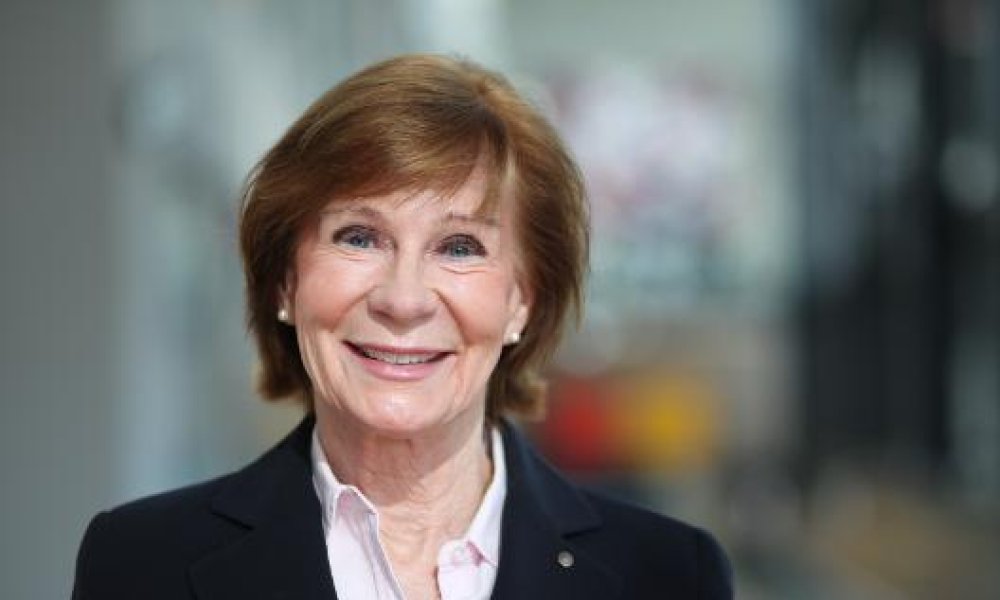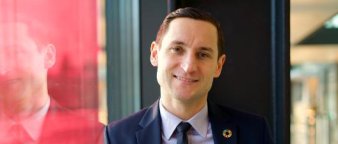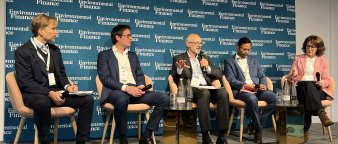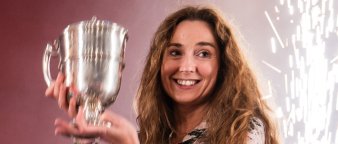This December, Inger Ertvaag retires from Storebrand Asset Management, after a lengthy career at the company and beyond. She departs having developed an impressive client portfolio and a wealth of relationships across the industry. We sat down with Inger to find out what we could learn from her career.
How does it feel to be retiring from Storebrand?
While I love my current role, I do look forward to retiring, after a long career with Storebrand Asset Management and several decades in the industry. The journey has been marked by many long days to ensure success on clients' behalf.
Looking ahead though, I'm excited to redirect my expertise and knowledge towards new missions, particularly in corporate board management. This transition aligns with my original plan, which was to embark on this path from the age of 50, making this shift long overdue.
You've been central to a lot of important client relationships in that time – how have you done that?
I think it's because I'm a curious person by nature. I really love getting to know people and I commit time and effort into doing it: asking them questions and learning about them. That's fun, but it also pays off: if you ask someone a lot of questions, you normally get some answers. And those answers, can help you uncover a pattern that tells you a lot about what they are like as a person, what matters most to the business they operate, and what they need most from their asset manager.
Our job centres around crafting robust investment strategies tailored for pension funds, banks, and businesses. To do that well, prioritizing the client's best interests is paramount. I emphasize recommending solutions that genuinely benefit clients — rather than selling for the sake of selling.
To recommend the right solutions, it's been critical for me in my professional journey to thoroughly understand the two key sides of the business. One side is an in-depth understanding of what we offer: our products, capabilities, resources, and possibilities. The other side, which is even more important, is to understand the client's business objectives, financial standing, risk tolerance, and sustainability aspirations. Once you grasp both sides, the foundation for meaningful recommendations is established.
Persistence matters too. When I first began in the business, I had no clients, but I loved to travel. I went around Norway taking face-to-face conversations with potential clients and connecting with people at industry and social events. That didn't happen so easily though. I had to show up and I had to ask more than a few times, for those meetings to become possible. If I had given up after the first 'no' or 'I'm busy,' then my client base would have been significantly limited. Few people in this business have the luxury of having clients lining at the door to their office; you have to actively seek out and build those client relationships.
How has the culture of Storebrand shifted over the 20 years you've been here?
In many ways, the culture hasn't undergone significant changes, and in this regard, it's actually been a positive aspect. Storebrand has consistently been a supportive workplace, where individuals genuinely desire the best for one another. The high level of competence is notable, with numerous specialists contributing their expertise. The empowerment of individuals and the abundance of resources available contribute to our collective ability to address challenges for our clients effectively.
Also, there's been a gradual but noticeable internationalization, especially since Storebrand Asset Management's acquisition of SPP in Sweden, back in 2008. This evolution has added a more Nordic dimension to our operations, and it's exciting to see our significant international progress.
Has the situation for women in the finance sector changed since you were new?
Throughout the 23 years I've been employed at SAM, I have, in most cases, been the only woman in my team. I have often reflected on this, and I believe that part of the reason may be the challenges of combining this type of job with raising young children, especially considering the significant amount of travel involved in this field of work. While I find working with clients in this way incredibly rewarding, I hope more accommodating structures are put in place for women who have childcare responsibilities.
I can mention that I've applied for two positions in my life, and I was fortunate enough to be invited for interviews both times. Looking back at one of my earliest job interviews at the beginning of my career, it was quite intense. The male interviewer made overly personal comments and asked stereotypical questions such as 'Would you cry easily if a broker were to scold you?' The interview format from those days probably wouldn't be acceptable today. If I reflect on those experiences in today's context, it's evident that such interactions would raise significant concerns from the HR department.
Thankfully, I've never encountered harassment from either colleagues or clients. Certainly, it's valuable to maintain a sense of humour about what could be awkward comments or excessive “enthusiasm”. Nevertheless, it's undeniable that many women face inappropriate remarks or approaches, which is entirely unacceptable. It's something we must actively work to eliminate.
What does sustainability mean to you?
On a personal level, I think it's about balance and moderation in a lot of ways, while being in harmony with the environment in which you live. But its more than that.
Having grown up on a farm, I learned from early on about the importance of operating in harmony with nature, in so many dimensions.
For example, traditionally in the Nordics we have practice monocultural forestry: clear-cutting huge areas of land at once and planting the same type of tree. That practice is very efficient in the short term, but it's not at all sustainable in the long run.
When it comes to forestry on our family farm, we've just updated a new forestry plan: there'll be some logging along the way, but we plan to compensate by planting a mix of different types of trees. It's the slower road, but it helps us manage the asset better in the long run, as it means the forest is more resilient to insect attacks, weather events and so on.
Looking ahead, what do you expect to see more of in sustainability in finance?
When it comes to what we have to offer in our palette, I appreciate the Storebrand Global Solutions strategy because it emphasizes finding companies that are big on solutions to the SDGs (UN Sustainable Development Goals) - on overcoming challenges that impact our environment and society. We should amplify this type of thinking even more in investment.
AI is also a hot topic now — how do you see the risks and benefits?
I think there are many advantages if we can use it wisely, especially in the health sector. In asset management it can be used for speeding up mundane tasks, but we need to keep our eyes open and never get lulled into blindly trusting a computer, or a model. The human factor matters: when we utilize models in business and finance a good rule of thumb is to understand the outcome of the model. I think that it is pretty much the same with AI – we should approach it that way.
What is one lesson that you would give to a newcomer to the sector?
The most important thing is to be trustworthy and always present the best solution according to the client's needs. Make sure you deliver as agreed, and most preferably ahead of the deadline, not after. Trust is a soft "asset" and is crucial to have and is so easily torn down if one has been "tempted" to take short cuts.
Be resilient and a bit stubborn. Do the best that you can, as the most important aspect, as I have assessed it, is to constantly strive to do one's best and hope that it is good enough for both the client and Storebrand.
And last but not the least, business is fun! And I think our motto "value beyond return" is a good way to frame that: you're not just looking to make money — you're seeking to create a future to look forward to and I think that it is possible to combine these two. It's also crucial to have a good dose of both humour and gallows humour. Being able to share a joke with both colleagues and clients has been an incredibly important ingredient in my everyday life.
So, having said all that, what's next for you?
Professionally, I'll remain active, albeit in a different capacity: I look forward to becoming more involved in corporate board management.
At the Bekkestua Rotary, a club I've been a member of for many years, I've accepted the role of president for 2025/26. The symbol of Rotary International is a gear, signifying our commitment to ensuring all parts of society function smoothly. One of our mottos is 'service above self', which I find meaningful and strive to live up to.
On a personal level, I'll take up more piano playing again — that is, if my neighbours allow me. I used to play classical music a lot from the age of 7 years, until I graduated from high school. For years now, I've mainly played rock’n’roll and blues by ear during the late evenings. But now Beethoven's Moonlight Serenade, including the third movement, which is the most difficult part, is on my to-do list.
I hope further that my colleagues in Storebrand will want to stay in touch for a chat and a cup of coffee once in a while after I retire. There are so many great people that I've had the pleasure to work with and I really want to stay in touch with them. Of course, I’m also looking forward to more time with my family and four fantastic grandchildren.
How about a few questions to round things off, Inger?
- Kanelbulle or skolebrød? Kanelbulle.
- Favourite travel destination? New York.
- Northern lights or midnight sun? Midnight sun.
- Favourite animal? My dog Bruno: he's completely black and barely a year and a half old.
- How do you have the best parties? Just sit down for dinner with your friends, and maybe play some music —and then all of a sudden it is four in the morning!







